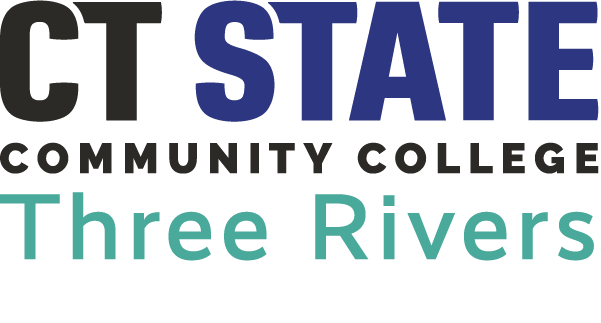Guided Pathways Advising – FAQs
Frequently Asked Questions
A major or program of study is a specific curriculum (set of courses) designed to meet career or academic goals. Faculty determine the appropriate courses to be required in a particular curriculum and make their decisions by determining what body of knowledge is required for a student to succeed in a particular career or transfer program. The specific curriculum for a major/program of study becomes the required courses you need to complete in order to earn a degree.
You should review and follow the graduation checklist for your particular major and declared year of matriculation. You and your advisor should meet in your first semester to create an academic plan to follow, and then meet each subsequent semester to chart your progress and any needed changes to your academic plan.
A matriculated student is one who is officially enrolled in/declared a degree program at the college. The phrase “degree-seeking” is often used interchangeably. Your matriculated/declared date is very important since that date determines which catalog year (and program requirements) you will need to follow to complete your program of study.
On occasion, degree requirements will change in a program of study. Once you matriculate into a degree program (declare a major), you should follow the curriculum as outlined in the year you matriculated into the program. You also have the option of following any subsequent curricula. Please see your advisor for with any questions you have about which program of study to follow.
In order to declare a major, you must go fill out the Program Change Form and submit it to the Registrar. Students who are unsure which major they want to pursue can declare as a General Studies student and then meet with a staff advisor to discuss options.
Quite often a student is able to utilize courses taken in a former major and apply them to a new program of study. An advisor can help you determine how and which courses you have taken may transfer to another program’s requirements.
In order to maintain full-time student status, a student must be enrolled in a minimum of 12 credit hours per semester. However, in order to graduate in two years, you must take 15 credit hours per semester or 30 credits in one year. At the rate of 12 credit hours per semester, it will take longer than four academic semesters to earn an associate’s degree. If you enroll in 12 credit hours per semester, you may be able to complete a program in two years by taking winter and summer session courses.
In order to be eligible for most forms of financial aid, a student may need to take at least six (6) credit hours. However, some students may quality for aid with only 3 credit hours. Contact the Financial Aid Office for additional information.
If a student is taking 15 credit hours toward a degree each semester, it takes approximately two academic years to complete. If a student is taking 12 credit hours per semester, it will lengthen the time needed to complete degree requirements. Taking summer/intersession courses will accelerate the process. Most degree program require 60 to 64 credit hours to earn the associate degree.
A prerequisite is a course that you must complete in order to enroll in the course you desire. In order to determine if a course has a prerequisite, refer to the course description in the college catalog.
The college needs to assess current level of proficiency in English and math for all students to determine appropriate course placement. Students can demonstrate their proficiency by submitting official high school transcripts, qualifying SAT/ACT scores, qualifying GED scores, transferring college-level coursework in English and math from another institution (including AP and CLEP tests), or taking a placement test (English Challenge Essay and Math Challenge Exam). The placement tests are not used to screen applicants for admission. The results of your placement tests will allow your advisor to recommend the best courses for you. Most students will determine their course placement based on placement measures. Students who graduated from high school over 5 years ago, are current high school freshman/sophomore/juniors, or have international credentials will need to take the English or Math exams to determine placement
An open/free/unrestricted elective means that a student may take any credit-bearing course to fill the course requirement. Students are encouraged to talk with their advisor to discuss recommended course options.
In order to earn credit for courses taken at another institution, you must have official copies of transcripts forwarded to the college’s Registrar Office. A representative will evaluate those credits and determine their equivalency to Three Rivers courses. If they are equivalent, credit will be awarded and appear on your Three Rivers transcript.
Currently, grades are posted on the Banner Self-Service system online. You may access your grades by going to the following website: https://my.ctstate.edu// . If you are unsure of how to access your grades or other information (account status, etc.), please contact the Registrar Office or your academic advisor.
Advisors for new students are assigned by the Advising Center during the first month of the semester. Assignments are based upon the intended major/program of study for the student. Your MyCTState will have the name of your advisor.
All faculty advisors should have clearly identified office hours during which they are available to meet with students. It is best to meet with your advisor during the academic year and their office hours as this time is set aside for student meetings. You can also email your advisor with any questions you have. Please note that faculty advisors are off contract between semesters. Thus, it is best to meet and connect with your assigned advisor during the academic year. If you have issues contacting your assigned advisor, please contact the Advising Center
A course may be repeated twice with the receipt of a grade A-F or W (meaning it may be taken a total of three times with the receipt of a grade A-F or W). After the third receipt of an A-F or W grade in a course, the student would need to request a waiver of the policy.
Students can add and/or drop courses during the first 7 calendar days of the semester. (Summer, winter, accelerated, and late-start courses have different add/drop deadlines; refer to the Academic Calendar for specific dates.) In order to add or drop a course, a student must go the Enrollment Services Office and complete the appropriate forms. A new schedule will then be printed. Please note, if a student is on financial aid, that office must be informed of any added or dropped courses. Students may withdraw from one or more classes any time before the end of the 11th week of the semester. (For summer, winter, accelerated, and late-start courses, refer to the Academic Calendar for specific dates.) A completed and signed withdrawal form must be on file in the Registrar’s Office by the deadline in order to receive a “W” on your transcript. If a student fails to complete this process on time, the student will receive a letter grade (A-F) at the end of the semester, which will include zeroes for any work not submitted. Course withdrawals may affect financial aid and veteran’s benefits. Students should make this decision carefully and with the help of their advisor.
An incomplete grade allows a student to have additional time to complete missing and required coursework after a semester has ended. A student may request an incomplete grade from a faculty member in extenuating circumstances, such as illness, that prevent the student from completing the assigned work on time. Although a student may request an incomplete, the faculty member is not required to grant the request. If an incomplete is granted, the faculty member will set forth in writing a description of the work to be completed, the date by which the work must be submitted (i.e. the end of the tenth week of the next standard semester) and a statement that the incomplete will change to a specified letter grade if the work is not completed by the due date. If no make-up grade has been specified, the incomplete will convert to an “F.”
Transfer Tickets are degree programs for Connecticut Community College students that transfer to a Connecticut State Universities and Charter Oak bachelor’s degree in that same discipline. Community College students can complete associate degree programs that transfer without hassle to the Connecticut State Universities and Charter Oak State College offering their major. Upon transfer, students are guaranteed full junior status and can complete a bachelor’s degree in their major without losing any credits or be required to take any extra credits. Select programs may have additional admission requirements. More information about Transfer Tickets can be found at http://www.ct.edu/transfer .
A student may transfer at any point in time to another community college or bachelor level university. The college or university you wish to attend will determine the number of credits hours needed to be designated as a transfer student. Many colleges will still require SAT/ACT scores if that number is not met. Please refer to the specific college or university you hope to attend to gather this information.
The college that you transfer to determines which courses they accept. Grades of “C” or “C-” or better, depending on the college (Connecticut State Universities will accept a “C-”; UConn requires a “C” ), are usually required to transfer. In order to ensure that the specific courses you select will meet degree/general education requirements at the transfer institution, we recommend that you identify institutions to which you hope to transfer early in your academic career at Three Rivers. It is best to discuss your course selections with your advisor who can help you determine the possibility of your courses transferring to the new institution. In addition, the staff advisors are available to work with students on identifying what courses may transfer. You should always check with the college/university to which you plan to transfer to confirm how courses will transfer. Remember to keep all your course syllabi to facilitate course transfer.
A student cannot transfer financial aid, but instead needs to apply for aid at the new school. If a student has already completed the FAFSA application, then the school code needs to be added to the FAFSA so that the information can be sent to the new college. The school code may be added via the web or by contacting the FAFSA processor.
Based on Guided Pathway HCMA Policy advisors are assigned and if there is a concern about assigned advisor, this can be discussed with Campus Advising Lead on a case by case basis.




